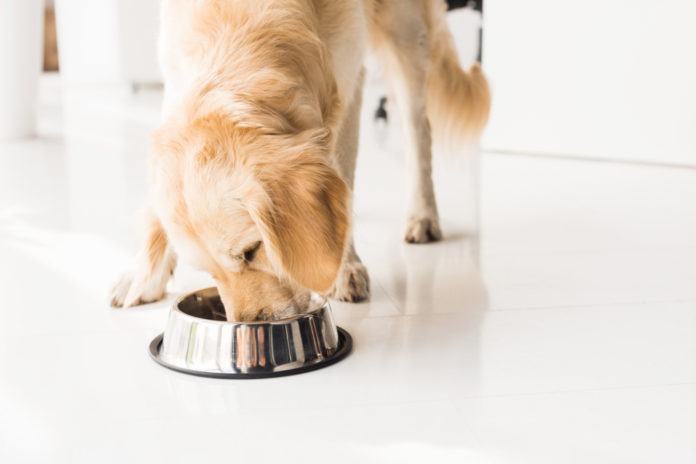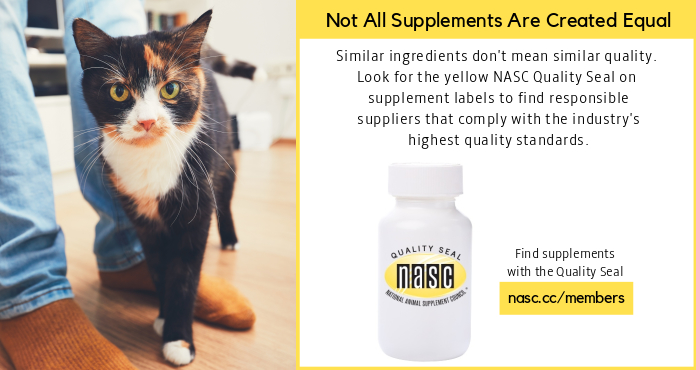What to know before starting your dog or cat on a supplement

A few important things to keep in mind when shopping for a supplement for your animal companion.
There are two reasons to add a supplement to your dog or cat’s health regimen. One is to support his diet nutritionally. The other is to provide specific ingredients for a particular health benefit. In either case, let your veterinarian know you’re starting the supplement, especially if your animal is on prescription medication that could potentially interact with supplement’s ingredients. Some supplements may either increase or decrease the effects of a medication your veterinarian has prescribed. Your veterinarian will be able to look up the ingredients and compare the product’s purpose to your dog or cat’s specific needs.
Some people may think there is no possibility of an adverse reaction when giving a “natural” product to their animals; however, although reactions may be less common, they are not impossible. Some dogs and cats can be sensitive to natural supplements that are well-tolerated by the majority of the population. To help avoid a potential reaction, more cautious veterinarians may recommend gradually starting a dog or cat on a new supplement, introducing it at a smaller amount than recommended on the label, and gradually increasing it over a week’s time.
If you do suspect your dog or cat has had a reaction to a supplement, contact your veterinarian immediately, with the product package in hand, so you can communicate the name and its ingredients. Also report the reaction to the company that supplies the supplement by using the contact information on the product label. (Be sure to locate the product lot number on the container before calling, as the manufacturer will likely ask for it.)
Before adding a nutritional supplement, you should have a solid understanding of what is in your dog or cat’s normal diet and whether the nutrients in the supplement will exceed the recommended daily amounts. Some ingredients found in nutritional supplements may already be included in your dog or cat’s food, which could result in too much of a certain nutrient. For example, adding Omega-3 fatty acids when the animal is getting adequate fat from his diet could lead to weight gain over time.
Finally, even though many human dietary supplements have similar ingredients to animal supplements, and in some cases even similar-looking labels, it is generally not recommended that your give your dog or cat a product intended for humans. Some human supplements contain ingredients that may be harmful to dogs or cats. Plus, animals metabolize differently than we do, so choose supplements formulated specifically for your animal’s species, and appropriately administer them according to his size.
Always remember to look for the NASC Quality Seal when buying supplements for your dog or cat. This tells you the product comes from a responsible supplier that has passed a comprehensive facility audit and maintains ongoing compliance with NASC’s rigorous quality standards, which include strict guidelines for product quality assurance, adverse event reporting, and labeling standards. Visit nasc.cc/members for a complete list of NASC member companies that have earned the Quality Seal.




